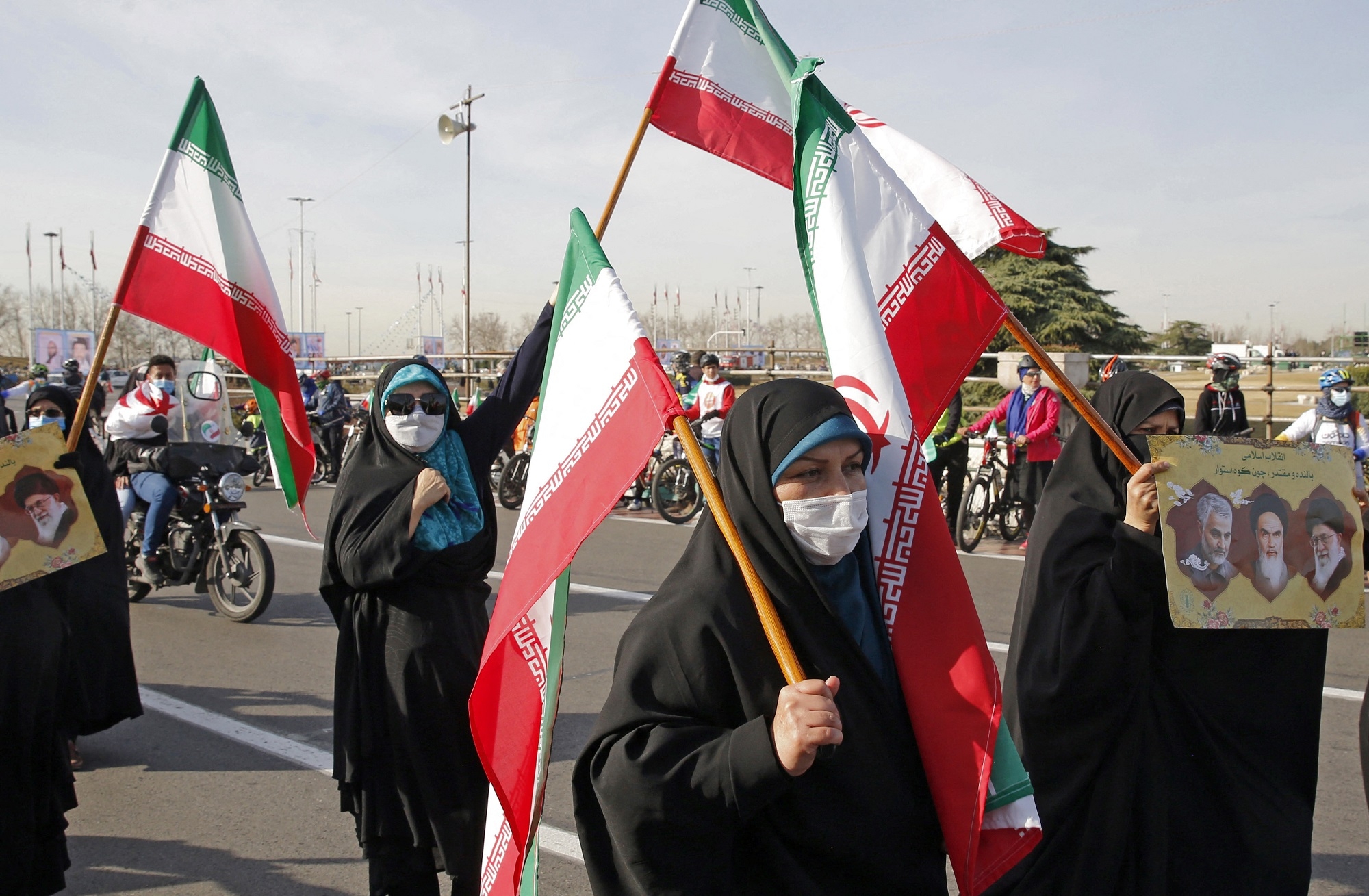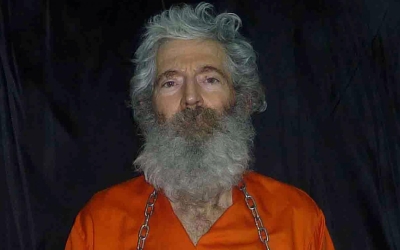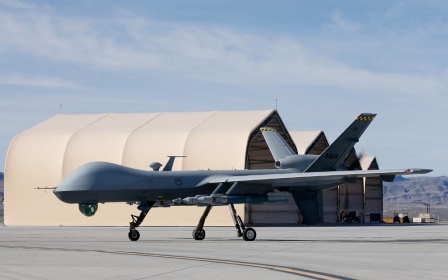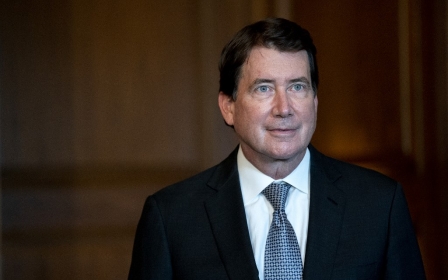US lawmakers implicitly criticise Iran deal in bipartisan letter

US Congress members from both political parties have urged the Biden administration to seek a "comprehensive" deal with Iran, in an implicit criticism of efforts to revive the nuclear deal.
In a letter addressed to Secretary of State Antony Blinken, the 140 lawmakers did not explicitly rebuke the nuclear accord, but said any deals with the Islamic Republic should address Tehran's regional activities and ballistic missile programme - issues that fall outside the scope of the agreement.
"America and our allies must engage Iran through a combination of diplomatic and sanction mechanisms to achieve full compliance of international obligations and a demonstrated commitment by Iran to addressing its malign behavior," the letter, signed by 70 Republicans and 70 Democrats and released on Tuesday, reads.
"Three core tenets - their nuclear program, their ballistic missile program, and their funding of terrorism - must be addressed from the outset."
The pro-Israel lobby AIPAC, which led the opposition to the Iran deal when it was first signed in 2015, welcomed the letter, calling it a "major bipartisan affirmation of the need for a broad, strong Iran policy".
"AIPAC commends the 140 representatives - 70 Democrats and 70 Republicans - who sent a letter to Secretary of State Blinken urging that any agreement or set of agreements with Iran must comprehensively address the full range of threats that Iran poses to the region," the group said in a statement.
ABC News first reported on the letter early on Tuesday.
Opposing JCPOA
Ryan Costello, policy director at the National Iranian American Council (NIAC), a Washington-based group that supports diplomacy with Iran, said the letter used "slippery language" that stands in opposition to efforts to revive the deal.
"In reality, that's really the thrust of this thing - it says that all issues with Iran need to be addressed at the outset of an agreement," Costello told MEE.
"And so it appears designed to cut against Biden's stated foreign policy objective, which is to get back to the nuclear deal, and then use it kind of as a platform to address other issues with Iran."
The multilateral deal, known as the Joint Comprehensive Plan of Action (JCPOA), saw Iran scale back its nuclear programme in exchange for lifting international sanctions on its economy.
Former President Donald Trump nixed the accord in 2018 and started piling sanctions on various Iranian industries and individuals as part of his "maximum pressure" campaign.
In turn, Iran has been loosening its commitments to the pact, including by enriching uranium beyond the limits set by the agreement.
All Democratic presidential candidates in 2019 and 2020 had pledged to return to the agreement rebuking Trump's policies.
President Joe Biden and his top aides have said that curbing Iran's nuclear programme and returning to the deal is a top priority, but the US administration would like to make the agreement "longer and stronger" and use it as a platform to address other issues.
Later on Tuesday, State Department spokesman Ned Price said the administration and the lawmakers who signed the letter are "on the same page in broad terms", stressing that reviving mutual compliance with the deal is "necessary but not sufficient".
"We have also spoken to the need to number one: lengthen and strengthen the terms of that deal," Price said.
"But two: Importantly, to use the JCPOA as a platform to negotiate follow-on agreements, agreements that would cover other areas of concern... Two of those concerns certainly ore ballistic missiles and Iran's support for terrorism, two issues that I believe were mentioned in that very letter."
Yet Washington and Tehran remain at an impasse, with Iran demanding unconditional sanction relief, and the US arguing that the Islamic Republic should return to full compliance with the deal first.
Sanction relief
Meanwhile, Biden is facing pressure from Iran hawks who oppose the deal in his own Democratic Party.
Last week, senators grilled the president's nominee for deputy secretary of state Wendy Sherman over Iran policy, with the Chair of the Senate Foreign Relations Committee insisting that the administration must keep some sanctions against Iran.
Sherman appeared to agree with Menendez's rationale. "It is a fair statement that we have to keep sanctions on [Iran] that deal with human rights abuses, state sponsorship of terrorism, arms sales, et cetera, what we've done in terms of Hezbollah and Hamas. So yes, I think there are many things that need to stay in place," she said.
Tehran, however, says that all sanctions must be lifted by the United States as the party that left the agreement first.
Iranian officials have also ruled out talks over the country's domestic missile programme and regional policies. They blame the militarisation of the region on the United States, which has been selling weapons in the billions of dollars to Saudi Arabia and the United Arab Emirates.
"JCPOA cannot be renegotiated - period," Iranian Foreign Minister Mohammad Javad Zarif wrote on Twitter last week in an apparent response to remarks by US politicians calling for expanding the agreement.
"If 2021 is not 2015, it's not 1945 either. So let's change UN Charter & remove the veto - so often abused by US. Let's stop posturing - which we both did 2003-2012 to no avail - & get down to implementing JCPOA - which we both actually signed on to."
On Tuesday, Zarif indirectly criticised the congressional letter in a Twitter post, noting that the C in the JCPOA stands for "comprehensive".
The US administration has said it is ready for direct talks with Iran through the multilateral JCPOA framework. But the Iranian government has not accepted the invite, yet.
Costello, of NIAC, said Tuesday's letter undermines the Biden administration's leverage at the negotiations table by presenting Congress as a "spoiler" to diplomacy between Washington and Tehran.
"The real question right now on the Iranian side is: Is Biden actually serious about offering sanctions relief? And can he deliver that sanctions relief? And so letters like this do get seen by the other side... It's going to be noticed that a bunch of members of his party are seeming to contradict him in letters," Costello said.
Late last year, 150 Democratic lawmakers urged Biden, who had not taken office at the time, to return to the deal.
Middle East Eye propose une couverture et une analyse indépendantes et incomparables du Moyen-Orient, de l’Afrique du Nord et d’autres régions du monde. Pour en savoir plus sur la reprise de ce contenu et les frais qui s’appliquent, veuillez remplir ce formulaire [en anglais]. Pour en savoir plus sur MEE, cliquez ici [en anglais].





